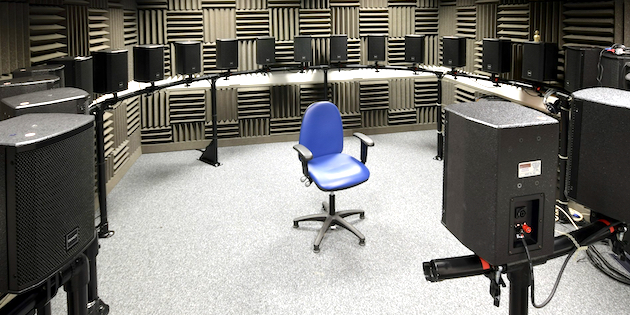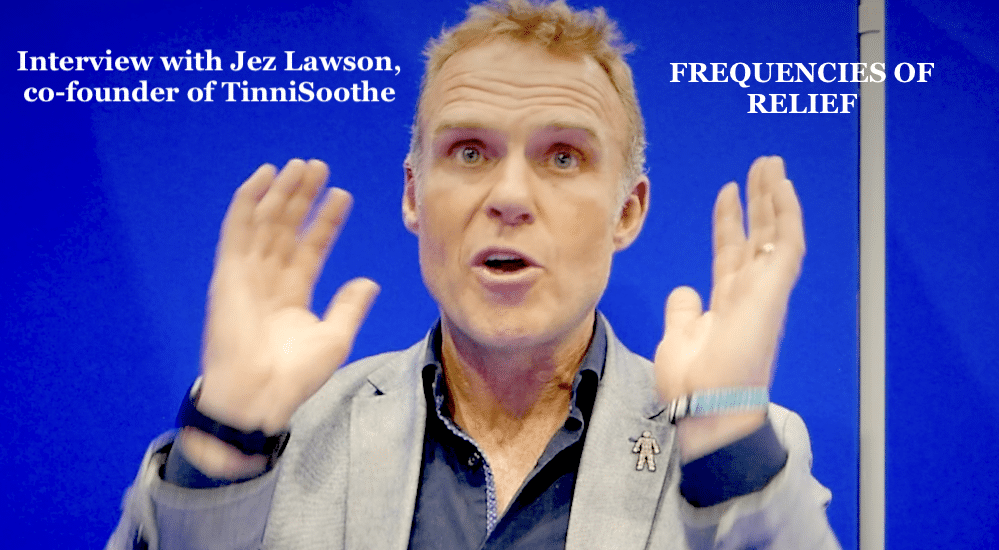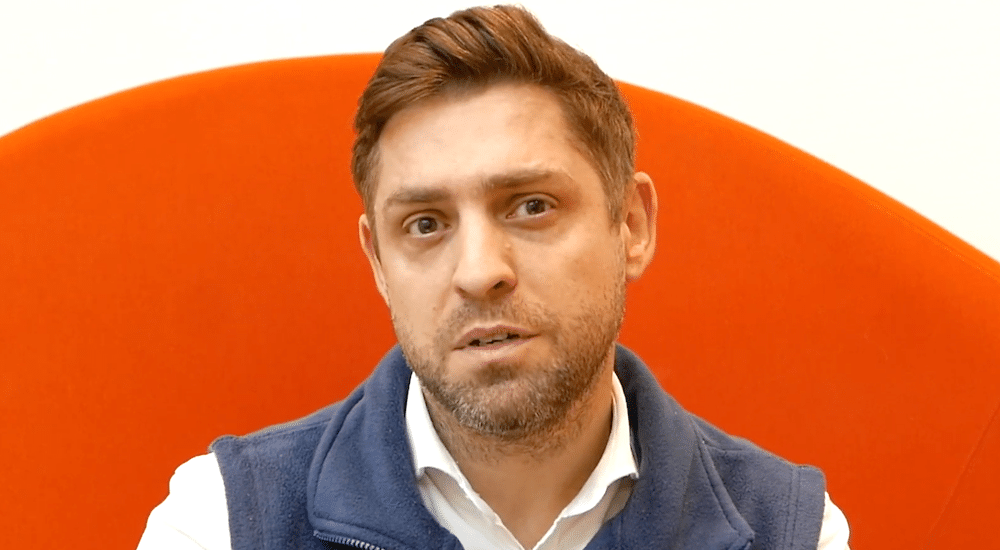What price is UK hearing research paying for lockdowns?
research
Over the months since coronavirus restrictions were first introduced, the flow of investigation into hearing has been obstructed and, to some extent, rerouted. Though manufacturers' installations have been hard hit, perhaps the worst hit research centres have been universities.

The therapies, devices, procedures, measurements, medicines, power sources, approaches, campaigns, and myriad applications of intelligence used to manage and protect against hearing loss all come from a river whose source is research.
In the UK, much of the leading hearing research is carried out by academics working in National Institute for Health Research (NIHR) centres such as the Biomedical Research Centre of the University of Nottingham. Along with all other education centres (and company offices), this was shut down when lockdowns were established. So, together with the programmed summer break, this means close to eight months during which researchers have been locked out of their labs. Their long-awaited return did not materialise in September, and only work on time-sensitive projects is going ahead. Visiting participants for research are not allowed.
Graham Naylor, Professor of Hearing Sciences in the Faculty of Medicine & Health Sciences at Nottingham, gave Audiology Worldnews his opinion, one he stressed is based only on the situation in his centre, ˝although all the people I have been in touch with in other universities are, I think without exception, in a very similar situation, and that is that we are not back in our offices yet. We are not allowed to be there, so obviously we can’t have any participants in.˝
Prof. Naylor’s team garners much significant data from research involving human subjects, so the loss of contact in the same physical space is a cause for concern, and one that he fears may drag on. ˝I’m not too optimistic about a return to normality. Even when we are back in our offices, that’s not the same thing as the University authorities allowing visitors to come in. And even when that is allowed it is not certain the participants will want to come in,˝ he says.
People’s anxieties have undoubtedly been heightened by the crisis. Even having people in for survey purposes can provide data that an online process might not surrender, Naylor points out. ˝Data quality is different, and there are lost snippets of anecdotal stuff that respondents will typically just offer you without being asked,˝ he stresses.
˝What many of us are trying to do is innovate our methods so that we can do as much as possible without having to have physical face-to-face contact with participants. For some kinds of studies it’s easy, but for others it’s trickier though, in principle, doable. When questionnaires have been run for years face-to-face, running online what in principle is exactly the same study turns out to be a rather different animal. The data you get has a different context to it. You don’t have the body language and feeling for whether the respondent is understanding things the way you hoped them to.˝ It is likely, this expert surmises, that people will remain apprehensive for some time about visiting research facilities. “So, all the studies we have planned that depend on placing multiple participants with hearing loss in controlled environments with noise and reverberation, and then seeing how their conversation breaks down, are on hold for the moment,” points out Naylor.
New ways of working emerge
In the meantime, researchers have had to adapt and some silver linings have appeared. ˝There has been a boost in output,˝ states Prof. Naylor, ˝with more papers being submitted to journals. However, in most cases this is a clearing of the backlog, and cannot be sustained indefinitely,˝ he adds.
˝The other silver lining I have experienced is that the situation has forced us to reflect on the essentials of our work, and to innovate our research methods to make them compatible with the current situation. As a by-product, we have modernised some processes which probably should have been updated earlier.˝
Work must go on, nevertheless. ˝We can’t just sit on our hands whilst COVID blows around our heads,˝ he maintains, ˝and with no idea how long this can go on for, beyond clearing our backlog of paper writing, we also have to be making progress to the best of our ability with the work we’ve promised.˝
The diversion of effort and resources towards COVID-related studies has been reported in journals worldwide as one of the current burdens for scientific research in general, but in Nottingham’s case funding bodies have urged departments to stick to their agendas. However, some plans have to be abandoned, points out Naylor.
Commenting on the four-year programme grant his group has from the Medical Research Council and from the Chief Scientist Office in Edinburgh to cover work until 2022, he maintains an optimistic outlook: "One can’t be surprised if there are academics in various areas of research thinking ‘oh, all the research money is going to go to people who are trying to cure COVID'; that I don’t think is the case.˝ The message from funders may be reassuring for now, ˝though of course we don’t know how it will actually pan out in practical terms,˝ adds Naylor.

The remote dividend
"The pandemic has pushed us much quicker towards doing things online," Naylor stresses.
This is the most glaring silver lining emerging in reporting of hearing healthcare at all ends of the spectrum: remote tools and online possibilities appear to be bringing scientists and companies advantages in communication and connectedness. ˝I think we are beginning to realise that we could manage with less frequent travelling to meetings, so we don’t have to spend time travelling,˝ says Naylor.
But there is a downside: ˝Face-to-face gatherings have value which online meetings are not (yet) able to provide. For instance, when I want to know who is who in a new topic area I need to engage with, a physical gathering is much more effective. Likewise, physical gatherings are probably more important for young researchers (both to learn what is what and to get exposure) than for more senior academics who are widely known and can make contact with anybody they choose.˝
Disruption to supplies and repairs
One unknown for academics who have been off-site for months is the state of maintenance of equipment and the guarantee of lab provisions, including wet and live supplies. ˝As long as nobody is allowed back into their labs to work, supplies of materials are not a problem,˝ says Naylor. ˝It looks as though supply chains for PPE, sanitising equipment and so on have recovered reasonably well, so that should not be a major issue.˝ But this professor has heard on the academic grapevine that situations involving laboratory animals is a cause for concern: ˝Lab animals are both supplies and participants in experiments. It’s a really tricky situation for those kinds of activities because you cannot just close down an animal lab. The colonies of animals have been maintained but institutions are very reluctant to take on any new responsibilities of that sort, which means things tend to stand still. Colonies of animals will be maintained but perhaps not developed.˝
A funding squeeze?
If the bottom line is always money, then there is an uncomfortable issue facing all researchers. Jobs depend on funding, and a May 2020 European University Association briefing on the “The impact of the Covid-19 crisis on university funding in Europe” affirms that “all sources of university income will be affected in some way in the short to medium term.” Meanwhile, a May report from the Australian Academy of Science paints darker details: In Australian universities, approximately 7,000 research staff may lose their jobs over the next year and about 9,000 international research students may not get a chance to resume their research by the end of 2020, it states.
For Prof. Naylor, the economic question is an inevitable concern: It would be surprising if the general economic downturn that is affecting total economies did not affect the research economy somehow and lead to more competition for less funding overall.˝ ˝In terms of hearing research, our ability to get hold of some of the funds that are available will obviously depend on the quality and relevance of the research questions we propose to answer,˝ he concludes.
Valuable research
During the lockdown period, the Hearing Sciences department at Nottingham has produced timely and relevant research relating directly to COVID-19, ˝which we obviously would not have done otherwise,˝ he states. One study reviews the evidence of links between two drugs proposed for use against COVID-19 and damage to hearing and balance (). A second study explores how people with hearing loss are particularly affected by the restrictions and precautions of lockdown.
Severe implications for tinnitus research
Hopes for timely pharmacological advances towards possible cures for tinnitus have been stymied by the halting of key research because of COVID measures. And even the silver linings emerging for both tinnitus patients and researchers are dulled by uncertainties affecting funding, the exhaustibility of permissible research methods, and dented incentives for talented youngsters facing career decisions.
Prof. David Baguley, who heads up the Clinical Hearing Sciences group within the NIHR Nottingham Biomedical Research Centre, University of Nottingham, explained the ˝particularly unfortunate timing˝ of hurdles added by the pandemic crisis to his expert area of tinnitus: ˝Tinnitus is moving into a phase now of randomised clinical controlled trials, and there are a number of pharmacological companies around the world with drugs ready for clinical trials that are of significant interest. The present situation is going to hold those back, there are no two ways around it.˝

With a number of these trials planned, ˝the companies have done their best to try and get their trials through but clearly everything is paused. It’s very frustrating," stressed Prof. Baguley.
This clinical academic and former President of the British Tinnitus Association (BTA), concurs with his Nottingham colleague, Prof. Graham Naylor (see above) that the impact on research has stalled work rather than shifted its focus, but Baguley’s concerns embrace both the viability of currently permitted research methodology, and the threat to human resources. ˝We’ve certainly not had a major refocusing of our research interests; we’ve just seen some pausing, but who knows what the medium and long-term impacts will be?˝ he ponders. ˝A lot of our research has moved online, but we’re seeing a fair amount of survey fatigue from people, and I’m not quite sure how sustainable that is,˝ he warns.
˝I’m concerned about the effect this is having on the morale of early career researchers and PhD students who were gearing up for a career in hearing in tinnitus-related work and have had the stool kicked from underneath them,˝ said Prof. Baguley.
Among some positives from the situation, this hearing loss professor notes that ˝journals are reporting an uptick in submissions of 40 to 50%, but it is getting very difficult to find reviewers, so there is reviewer fatigue too. It is a good thing that people are writing up their backlog of data, but not a sustainable future for research.˝
There are pluses too for patients, with lockdowns meaning less stress and less noise for many tinnitus sufferers, says Baguley.
˝I am, however, really encouraged by the amount of tinnitus research that’s ongoing, and by the amount of interest that there is in tinnitus,˝ he enthused. ˝The latest grant call from the BTA was massively oversubscribed. That shows that there is a real groundswell of interest, and one difficulty is that the tinnitus community has just started to have big, high-level meetings that are really getting to grips with the issue, and whether we will be able to take those online is also, at the moment, a moot question.˝
˝The Tinnitus Research Initiative meeting is due to be in Dublin 2021, and people are keenly waiting to see if that is going to be in person or somehow delivered online,˝ continued Baguley.
This magazine has yet to speak to anyone in audiology who hasn’t found some advantages to using remote communication tools, and Prof. Baguley is no exception. ˝I’m very impressed with how deftly people have moved to Zoom, and certainly I am seeing some new quick-running collaborations happening internationally that wouldn’t have happened if I didn’t have time and space due to COVID and being locked down,˝ he concludes.
Source: Audio Infos 136 September 2020
 Sign in
Sign in

